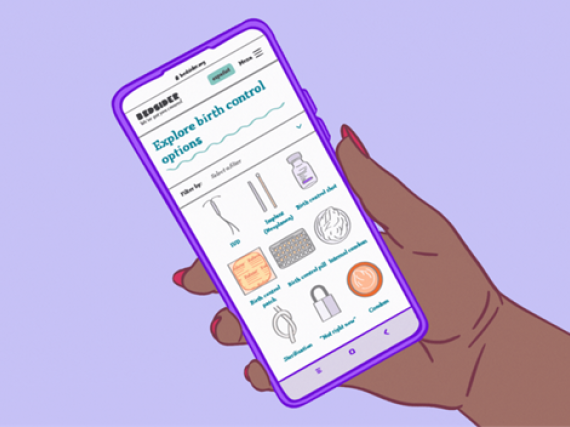Tackling Complicated Sexual Health Questions From Your Kids
By the time I had my first child, I had been a sexuality educator for 13 years. When I was pregnant, I dreamt of the times that my soon-to-be born child and I would spend together sharing my knowledge and hard-earned wisdom about sexual health and sexuality. They would be comfortable and confident in coming to me—asking their questions and trusting me as their unimpeachable resource for sexuality information. It never occurred to me, that they would be anything but excited to have me teach them about sex. I learned very quickly that just because I am open, comfortable, and confident talking about sex and sexual health doesn’t mean my children are.
When my kids were little and asked questions about the mechanics of how babies are made, we talked about body parts and facts. We watched silly animated videos about sperm and eggs. As they grew and puberty hit, things became a lot more complicated. Conversations started to focus more on emotions, relationships, pleasure, consent, and how to prevent unintended pregnancy. I took every—and I mean EVERY—opportunity to engage my kids in dialogue about sex. Late night condom commercial on the radio during a road trip? Opportunity to talk about sex. A television show that portrays an unintended pregnancy? Opportunity to talk about sex. A question about voting rights in America? Let me tell you how that impacts your sexual health. I wanted them to know that they could come to me about anything. That I would listen and not judge. But it was my kids that had stopped listening. None of what I said mattered if I couldn’t share information in a way that was meaningful to them.
Here are the four ways I tackle complicated sexual health information with my kids and how I make sure they hear it.
Consent matters when it comes to information.
Consent is the foundation to just about every healthy relationship in life and the same goes for sharing information about sexual health with your kids. When my tween asks me a question about sex or a topic comes up that I know they will be uncomfortable with, I give a brief overview of what I am going to talk about and then ask “how do you want this information? I can send you a text or email that goes more in-depth. I can send you an article from a reputable source. Or we could sit down and talk about this. What would be the best way for you to hear this information?” Unless there is an issue about their personal safety or that of someone else—respect the way that they want to receive information. It will go a long way in modeling consent and communication in a healthy and respectful way.
What’s the why behind the question?
Most of the time, when my kids ask questions about sex there is something else they’re asking all together. My kiddo asked what a blow job was the other day. This was completely out of the blue—so I knew something was up. I said “I’m happy to explain that to you, but tell me why you are asking that? What is going on in your world right now that makes you ask?” Someone was chatting in a server about blow jobs, and it made my kid uncomfortable. What they needed was to talk about how to navigate uncomfortable and potentially unsafe interactions online, not an in-depth explanation of what a blow job was. Take the opportunity to explore the subtext to their questions and you will be surprised by what you learn about them and better understand the info they are asking for.
Know when you are not the expert.
I am the very proud parent to a genderfluid, queer kid. As a cisgender woman, I may not have the right lens or understanding of issues that my kid is dealing with. Even though I have spent years making a career and focusing my education and research on sexual health—my kiddo needs someone to talk to that has lived experienced with issues around gender identity and navigating a reality that is different than mine. I lean on my friends and colleagues who have more experience than I do. If my kiddo asks a question that I feel out of my depth on, I say “I hear your question and I don’t know if I have the answers right now. Would you mind if I reached out to my friend that can answer those questions for you? I will respect your privacy and not share that it is you that wants this information. I want to acknowledge that I am not the right person to give you advice or information about this, but still get you the information you need.” It takes a village to raise a child and relying on your friends and family to help build a healthy sense of self and sexuality for your kids is important. If you don’t have people in your life that can help you teach your kids about sex and sexuality, here are two great online resources: Amaze and QChatSpace.
It’s ok to try again if you didn’t get something right the first time.
I don’t always get things right the first time—especially when it comes to parenting. If think you missed the mark or didn’t get across what you wanted to when talking about sex, it’s ok to let your kids know and try again. Talking about sexual health can be uncomfortable and complicated for kids and adults—but don’t let that stop you from having an open dialogue. Imperfect conversations are better than none and your kiddo will appreciate you modeling how to have hard conversations and what to do when you don’t get something right the first time.



